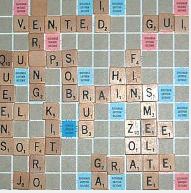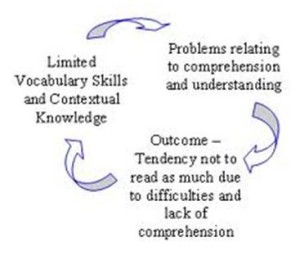The debate on children’s literacy development has recently shifted from problems with writing to problems with reading comprehension. While it is common for students to make progress with oral reading, they struggle with comprehension.
Comprehension is the accurate understanding and interpretation of a written material. Learning to read means that children are able to decode the words they read; they think deeply of what they are reading; they can make sense of what they have read and can connect the material they read into what they already know.
Reading comprehension is also acquired by developing a set of skills such as word identification, finding and understanding main ideas, identifying cause and effect relationships, comparing, contrasting and sequencing.
Reading Comprehension may become automatic to some but not to all children. There are some children who are having difficulties with reading comprehension. When a child says they don’t enjoy reading, or complain that it is hard to follow along, these are warning statements that express a child’s frustration and difficulty in reading comprehension.
Part of the reason for this appears to be a deficit in understanding a wide vocabulary of words.
Effective reading depends mainly of the ability to identify words quickly. If a child cannot make sense of the individual words, they will not be able to comprehend the whole story as well.
Children should be encouraged to use dictionaries to find the meaning of unknown words when reading. Participating in Thesaurus activities help them broaden their vocabulary and make connections to similar words when they are reading.
Working on concepts such as synonyms can also assist students to play with vocabulary to make their written work more interesting which in turn assists them when reading.
Apart from understanding individual words in a text, it is also vital that a child can put these words together and understand the idea behind them. This is text comprehension. Students need to be able to understand every part of a sentence. They should have a solid understanding of how adjectives and adverbs are used to add meaning, depth and texture in a sentence.
Encouraging discussions on topics they are interested in, or helping them to understand what is happening in the world around them assists students to make connections with what they are reading and in turn improves reading comprehension.
Another area to be aware of is the importance of using punctuation when reading to ensure the development of good expression. This aids in comprehension as students learn how to read a sentence that contains one idea or point at a time.
The most important gift you can give your child toward their learning is to encourage them to read and expand their vocabulary. Limit time in front of computer games and television and as an alternative take time to talk to your child and even have special times when you play good old fashioned word building games such as Scrabble. You can also read aloud to your child. You will be surprised how many teenagers still enjoy listening to an adult read to them. 

